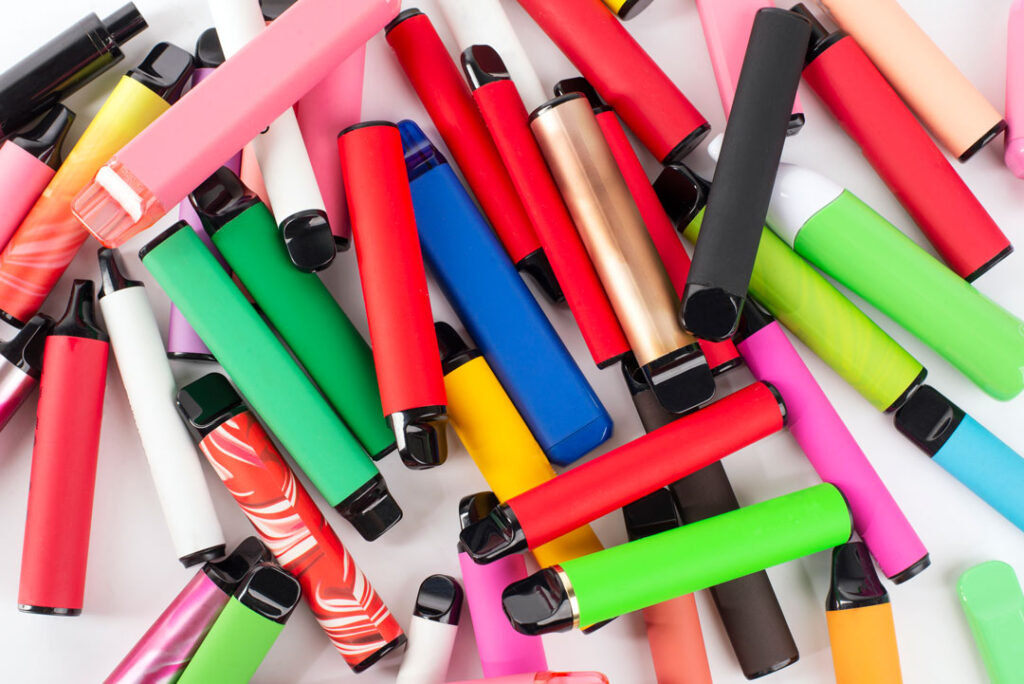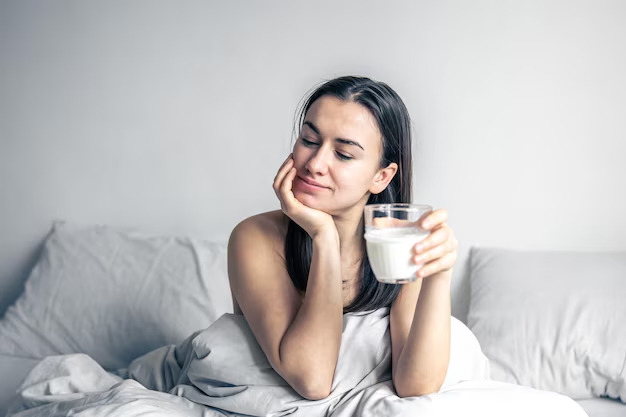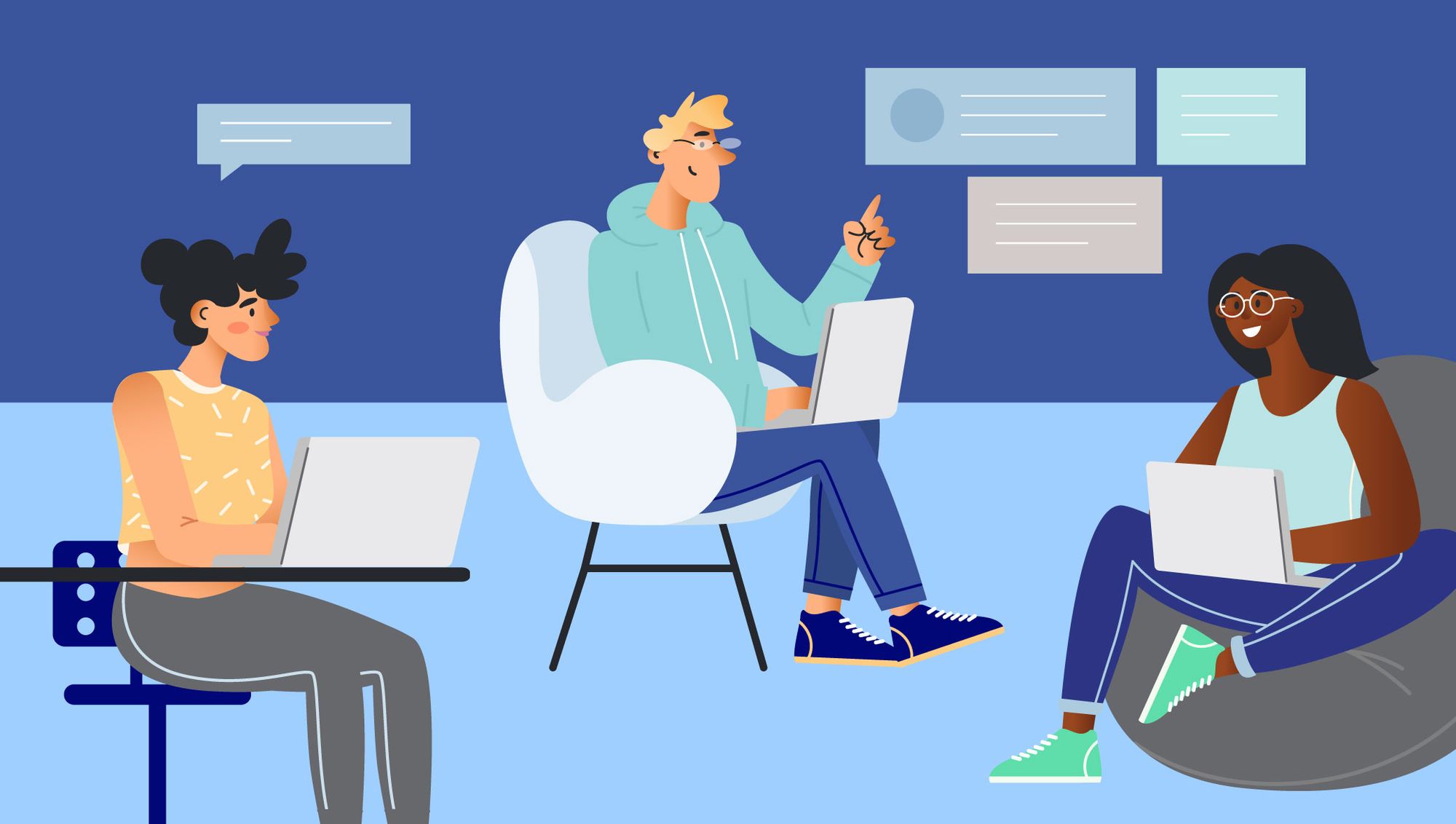
Many of us are aware of the dangers of nicotine, and more recently vaping, for young adults. According to the FDA, more than 2.1 million youth in America use e-cigarettes — and a staggering 1 in 4 of these young users use an e-cigarette product every day. (1)
A new study published in February of 2024 highlighted some alarming findings on the rise of vape use in young adults; specifically for sleep quality and mental health. Why is this paramount? The study explains that research is limited when it comes to the effects of vaping on sleep quality and chronotype in teens, as well as what personality traits might predispose certain teens to the habit. (2)
What You Should Know About the New Research
The study, conducted with 316 participants between the ages of 18 and 25 at the University of Surrey in Guildford, England, linked vaping to certain personality traits and a number of negative variables.
Researchers measured “mindfulness, rumination, self-compassion, anxiety/depression, chronotype, and sleep quality” (2) of each student and compared findings between vape-users and non-users.
When it comes to sleep, the study found some interesting patterns. Almost three-quarters of vape users were categorized as evening types, a much higher rate than the 40 percent of non-users. They also had lower levels of sleep quality than those that didn’t vape, with 77.6 percent experiencing significant insomnia symptoms. (2)
The study linked vaping to poorer mental health; an alarming 95.9 percent of vape users reported significant anxiety symptoms, also higher than the control group. A larger percentage of vape users had significant symptoms of depression, along with higher levels of loneliness, than the non-users. (2)
Concernedly, vape users had significantly higher levels of rumination, lower levels of mindfulness, and lower levels of self-compassion, which had not been studied before. The study states these findings might indicate that young adults with these traits may be at greater risk for vape use. (2)
What the Experts Have to Say About Teen Vaping
Dr. Roxanne Prichard, professor of neuroscience and psychology at the University of St. Thomas, told Sleepopolis, “It’s important to note that in the study, vape users used two times the amount of alcohol, so there was a lot of bidirectionality going on with the sleep problems, anxiety, depression, and rumination that participants experienced.” (3)
Prichard also commented on the addictive cycle of vaping, particularly for young adults; “Vaping initially makes people feel alert or calm, but it also keeps them awake. When they lose sleep, this makes them feel less alert and less calm.” (3) Vaping creates a vicious addictive cycle, which helps to explain why it is so difficult for young adults to break nicotine use.
Study author Dr. Simon Evans explained in the University of Surrey’s press release, “What is worrying is that many are unaware of or simply downplay the dangers of such products, believing that something that tastes ‘fruity’ could not be harmful. This is not the case as the nicotine contained in the products is known to negatively affect brain development and may induce behaviors that increase the risk of developing substance abuse issues.” (4)
Why Is Sleep Crucial for Young Adults?
Teens and young adults are in a critical period of brain development. Studies have found that poor teen sleep is associated with negative outcomes, and is crucial for overall health in both the short and long-term. (5)
Prichard explained to Sleepopolis the importance of sleep for mental health; “Sleep renews our brain connections and provides our brains the opportunity to do repair work on itself. Any decrease in sleep quality has implications on our physical and mental health.” (3)
Prichard also stated the importance of awareness for both parents and young adults on this subject. “It’s important to know how addictive nicotine can be. Vaping is most appealing to teens that have mental health and sleep problems.” (3)
This study highlights the implications of increasing vaping use on young adults’ sleep and mental health, and hopefully more research will follow in the near future to shed light on this urgent problem facing our youth.

Sources
- U.S. Food & Drug Administration. “Results from the Annual National Youth Tobacco Survey.” November 2, 2023. https://www.fda.gov/tobacco-products/youth-and-tobacco/results-annual-national-youth-tobacco-survey
- Evans, Simon L., and Erkan Alkan. 2024. “Personality Risk Factors for Vape Use amongst Young Adults and Its Consequences for Sleep and Mental Health” Healthcare 12, no. 4: 423. https://doi.org/10.3390/healthcare12040423
- Prichard, Roxanne. Author Interview. March 7, 2024.
- University of Surrey. “Vaping worsens sleep quality and the mental health of young people.” March 5, 2024. https://www.surrey.ac.uk/news/vaping-worsens-sleep-quality-and-mental-health-young-people
- Bruce ES, Lunt L, McDonagh JE. Sleep in adolescents and young adults. Clin Med (Lond). 2017 Oct;17(5):424-428. doi: 10.7861/clinmedicine.17-5-424. PMID: 28974591; PMCID: PMC6301929.




























